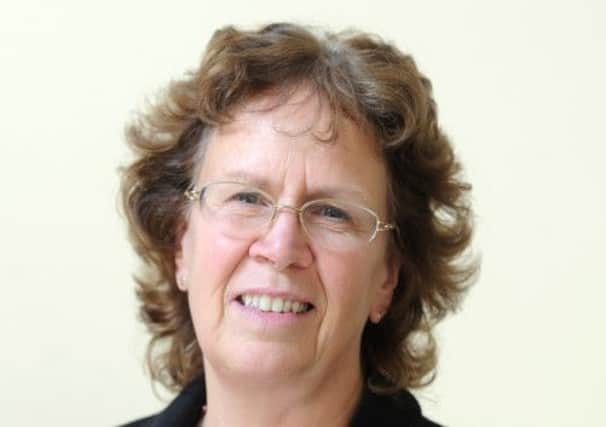Fears over ‘unfair’ grading as GCSE marks fall


Nationally, grades dropped for the second successive year yesterday after more than two decades of continual improvements.
Just over two-thirds (68.1 per cent) of entries scored A* to C this summer, down 1.3 percentage points from 2012 – the biggest fall in the exam’s 25-year history.
Advertisement
Hide AdAdvertisement
Hide AdOfficial figures show a sharp drop in science – where exams have been toughened up – with 7.6 per cent fewer entries earning a C or better compared with last year.
The proportion of entries gaining top grades across all subjects has also fallen by 0.5 percentage points – with 6.8 per cent achieving a coveted A*.
Ofqual, the exams regulator said there were more entries this year from 15-year-olds which meant comparisons with the previous year were difficult.
Council bosses across the region reported that their schools had bucked the downward trend. But Coun Judith Blake, the executive member for learning at Leeds City Council, said an overall improvement in the city’s results masked some schools facing sharp drops in pupils getting five good grades including English and maths.
Advertisement
Hide AdAdvertisement
Hide AdOverall, Leeds pupils achieved a 2.5 per cent increase in the level of pupils achieving five A* to C including English and maths.
Coun Blake, said: “The joy at this achievement is tempered by the fact that we feel there are pupils out there who have again been unfairly denied a C grade.
“There is a lot of turbulence in these results. Some schools are down ten per cent, others are up 15 per cent. We will be doing a full analysis of these results to understand why.”
She said the improvement in the city’s overall result “hide the issues that were created last year” over the way English GCSEs were marked.
Advertisement
Hide AdAdvertisement
Hide AdLeeds City Council was part of the failed legal challenge last year after exam boards moved the grade boundaries used to mark GCSE English between January and June. It meant the same standard of work could get a different grade depending on when it was marked. Campaigners tried unsuccessfully to get June exams remarked using the January 2012 grade boundaries.
Coun Blake said she believed setting grade boundaries to hold down the number of good grades could be causing sharp drops in pass rates at some schools this year.
An Ofqual spokesman said: “Grade boundaries are set after each assessment, based on the level of difficulty and the performance of the students. It is usual for different grade boundaries to be set for different exam series in order to maintain consistent standards.
“This year in GCSE English, the grade boundaries for January and June assessments were both set in the summer, to avoid some of the issues seen last summer when the differences between the two were larger than expected. We also tightened up the moderation of teacher marking of controlled assessment.”
Advertisement
Hide AdAdvertisement
Hide AdHe said the GCSEs sat this summer were still relatively new qualifications, and it is usual to see some variation at school level.
The latest national statistics show a drop in the proportion of entries scoring at least a C in key subjects including English, maths and science.
In English, 63.6 per cent of entries gained a C or higher, down from 64.1 per cent last summer. It comes amid a rise in the number of younger students taking GCSE English, the Joint Council for Qualifications (JCQ) said. In maths, 57.6 per cent of entries scored an A* to C grade, compared to 58.4 per cent last year.